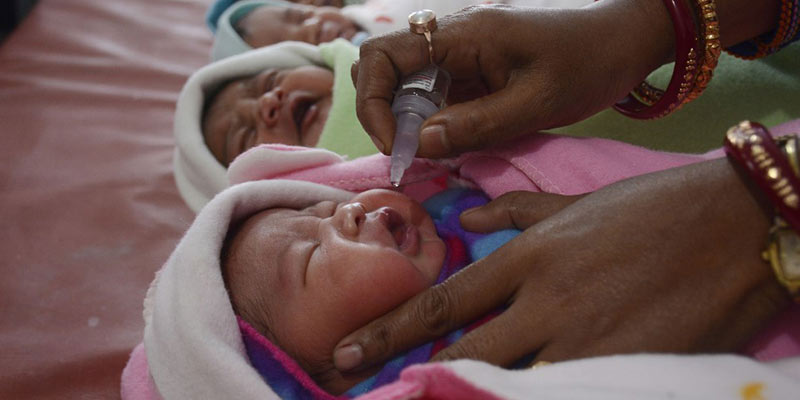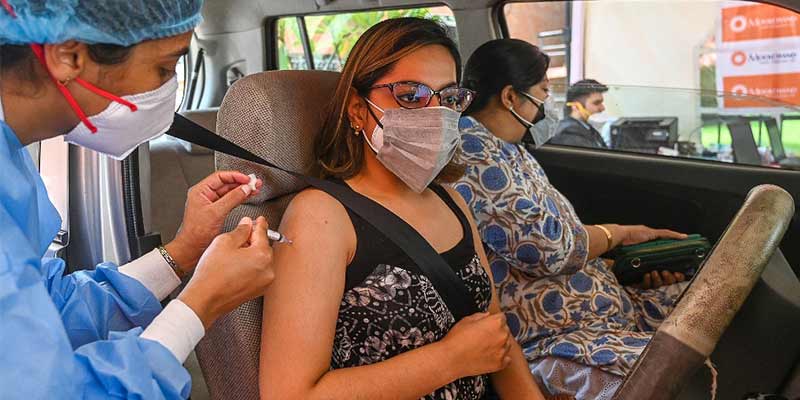- World
- Apr 26
Vaccines saved at least 15.4 crore lives in 50 years
• A study to be published by The Lancet reveals that global immunisation efforts have saved an estimated 154 million lives over the past 50 years.
• That is the equivalent of six lives saved every minute of every year of the half century.
• The vast majority of lives saved — 101 million — were those of infants.
• Released ahead of the 50th anniversary of the Expanded Programme on Immunisation (EPI) to take place in May 2024, the study is the most comprehensive analysis of the programme’s global and regional health impact over the past five decades.
What is vaccination?
• Vaccination is a simple, safe, and effective way of protecting you against harmful diseases, before you come into contact with them.
• It uses your body’s natural defences to build resistance to specific infections and makes your immune system stronger.
• Because vaccines contain only killed or weakened forms of germs like viruses or bacteria, they do not cause the disease or put you at risk of its complications.
• Most vaccines are given by an injection, but some are given orally (by mouth) or sprayed into the nose.
When you get a vaccine, the immune system:
i) Recognises the invading germ, such as the virus or bacteria.
ii) Produces antibodies. Antibodies are proteins produced naturally by the immune system to fight disease.
iii) Remembers the disease and how to fight it. If you are then exposed to the germ in the future, your immune system can quickly destroy it before you become unwell.
• The vaccine is therefore a safe and clever way to produce an immune response in the body, without causing illness.
• Our immune systems are designed to remember. Once exposed to one or more doses of a vaccine, we typically remain protected against a disease for years, decades or even a lifetime. This is what makes vaccines so effective.
• Rather than treating a disease after it occurs, vaccines prevent us in the first instance from getting sick.
Highlights of the study:
• Immunisation programmes have become the bedrock of primary health services in communities and countries due to their far reach and wide coverage.
• They provide not only an opportunity for vaccination but also enable other life-saving care to be provided, including nutritional support, maternal tetanus prevention, illness screenings and bed net distribution to protect families from diseases like malaria.
• Vaccines are among the most powerful inventions in history, making once-feared diseases preventable.
• Immunisation campaigns have enabled us to eradicate smallpox, nearly defeat polio, and ensure more children survive and thrive than ever before.
• The study, led by the World Health Organisation (WHO), shows that immunisation is the single greatest contribution of any health intervention to ensuring babies not only see their first birthdays but continue leading healthy lives into adulthood.
• Of the vaccines included in the study, the measles vaccination had the most significant impact on reducing infant mortality, accounting for 60 per cent of the lives saved due to immunisation. This vaccine will likely remain the top contributor to preventing deaths in the future.
• Over the past 50 years, vaccination against 14 diseases (diphtheria, Haemophilus influenzae type B, hepatitis B, Japanese encephalitis, measles, meningitis A, pertussis, invasive pneumococcal disease, polio, rotavirus, rubella, tetanus, tuberculosis, and yellow fever) has directly contributed to reducing infant deaths by 40 per cent globally, and by more than 50 per cent in the African Region.
• Since the study only covers the health impact of vaccination against 14 diseases, the number of lives saved due to vaccination is a conservative estimate and not a full account of the life-saving impact of vaccines.
• The study found that for each life saved through immunisation, an average of 66 years of full health were gained, with a total of 10.2 billion full health years gained over the five decades.
• As the result of vaccination against polio, more than 20 million people are able to walk today who would otherwise have been paralysed, and the world is on the verge of eradicating polio, once and for all.
• These gains in childhood survival highlight the importance of protecting immunisation progress in every country of the world and accelerating efforts to reach the 67 million children who missed out on one or more vaccines during the pandemic years.
• Founded in 1974 by the World Health Assembly, the original goal of Expanded Programme on Immunisation (EPI) was to vaccinate all children against diphtheria, measles, pertussis, polio, tetanus, tuberculosis, as well as smallpox, the only human disease ever eradicated.
• Today, the programme, now referred to as the Essential Programme on Immunisation, includes universal recommendations to vaccinate against 13 diseases, and context-specific recommendations for another 17 diseases, extending the reach of immunisation beyond children, to adolescent and adults.
• The latest study highlights that fewer than 5 per cent of infants globally had access to routine immunisation when EPI was launched. Today, 84 per cent of infants are protected with three doses of the vaccine against diphtheria, tetanus and pertussis (DTP) — the global marker for immunisation coverage.
• Nearly 94 million of the estimated 154 million lives saved since 1974, were a result of protection by measles vaccines. Yet, there were still 33 million children who missed a measles vaccine dose in 2022: nearly 22 million missed their first dose and an additional 11 million missed their second dose.
• Coverage of 95 per cent or greater with 2 doses of measles-containing vaccine is needed to protect communities from outbreaks. Currently, the global coverage rate of the first dose of measles vaccine is 83 per cent and the second dose is 74 per cent, contributing to a very high number of outbreaks across the world.
• To increase immunisation coverage, UNICEF, as one of the largest buyers of vaccines in the world, procures more than two billion doses every year on behalf of countries and partners for reaching almost half of the world’s children. It also works to distribute vaccines to the last mile, ensuring that even remote and underserved communities have access to immunisation services.
• Societal, economic or educational impacts to health and well-being over the 50 years have also contributed to further reductions in mortality. Today, there are vaccines to protect against more than 30 life-threatening diseases.
• Global immunisation programmes have shown what is humanly possible when many stakeholders, including heads of state, regional and global health agencies, scientists, charities, aid agencies, businesses, and communities work together.
• With continued research, investment and collaboration, we can save millions more lives today and in the next 50 years.
World Immunisation Week
• World Immunisation Week, celebrated in the last week of April, aims to highlight the collective action needed and to promote the use of vaccines to protect people of all ages against disease.
• Through its convening power, WHO works with countries across the globe to raise awareness of the value of vaccines and immunisation and ensures that governments obtain the necessary guidance and technical support to implement high quality immunisation programmes.
• The ultimate goal of World Immunisation Week is for more people, and their communities, to be protected from vaccine-preventable diseases.
Manorama Yearbook app is now available on Google Play Store and iOS App Store




